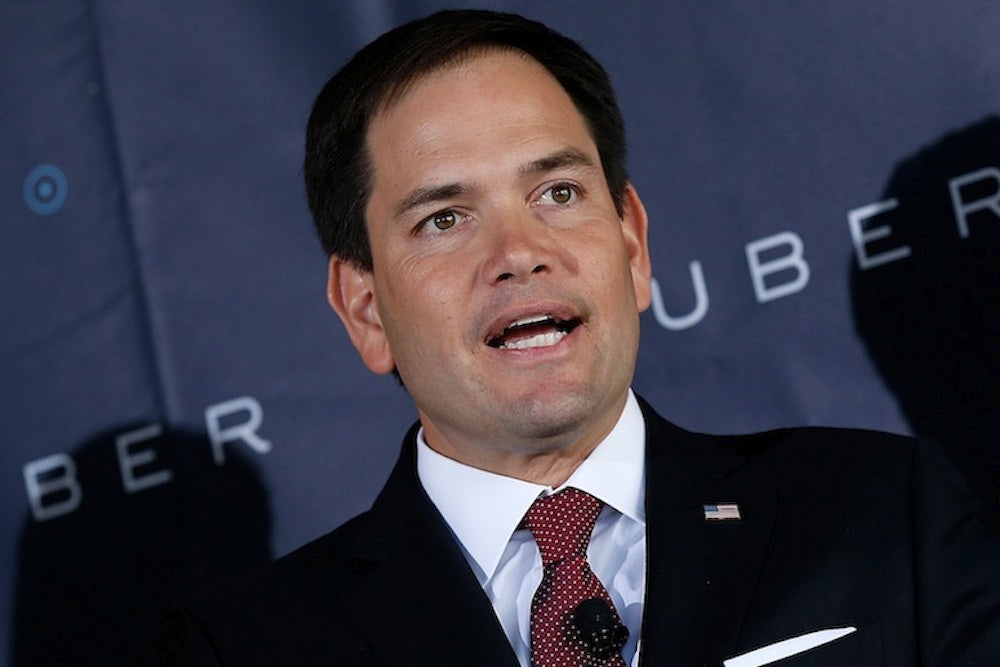The political tussle over Uber isn’t over. Last week, the company that provides on-demand, smart-phone-friendly transportation announced that it was hiring longtime Barack Obama adviser and confidant David Plouffe to head up its political operations. But the appointment of such a prominent Democrat hasn’t stopped Republicans from praising the company. The Republican National Committee has already run a campaign on behalf of the company’s way of doing business, which it says is an example of how “free market solutions” can disrupt and improve markets mired in regulation. (Uber threatens to break up the near-monopoly of taxi companies, which city regulations protect.)
On Monday, RNC Chairman Reince Priebus made clear that Plouffe’s appointment hadn’t changed his sentiments one bit. Uber, he tweeted, is a “bipartisan issue.”
Even top Dems admit that ride-sharing can benefit all Americans. http://t.co/VUAfT47pNZ Retweet & Support this bipartisan issue.
— Reince Priebus (@Reince) August 25, 2014Maybe so. But the praise for Uber is as much about its customers as its business model. Uber users tend to be young and urban and more diverse than the typical American. It’s a group with which the Republicans have recently and famously struggled. Uber operates mostly in large metropolitan areas across the U.S., with some of its biggest markets in New York, Los Angeles, Chicago, and Philadelphia. All of these cities lean strongly Democratic. In the last election cycle, Obama won 81 percent of the vote in New York City and 85 percent in Philadelphia. Only three of the major cities Uber is operating in (with 100,000-plus people) went Republican in 2012: Salt Lake City, Phoenix, and Oklahoma City.
If Republicans think championing Uber will win over young voters, they may want to check the surveys a little more carefully. There’s a reason young people tend to vote Democratic. It’s that they are the most liberal age group in America. They are the most likely to support universal health care, at 54 percent based on a 2014 Pew survey. They are also the most likely to support same-sex marriage—68 percent of millennials support same-sex marriage, compared to 55 percent of the generation above them, according to Pew.
You see their liberal tendencies in other issues, too. Just look at this poll on young attitudes about the proper level of government involvement in various issues:

Do young people in the cities like Uber? Sure. But it’s going to take more than support for a better ride around town to change their voting habits.
